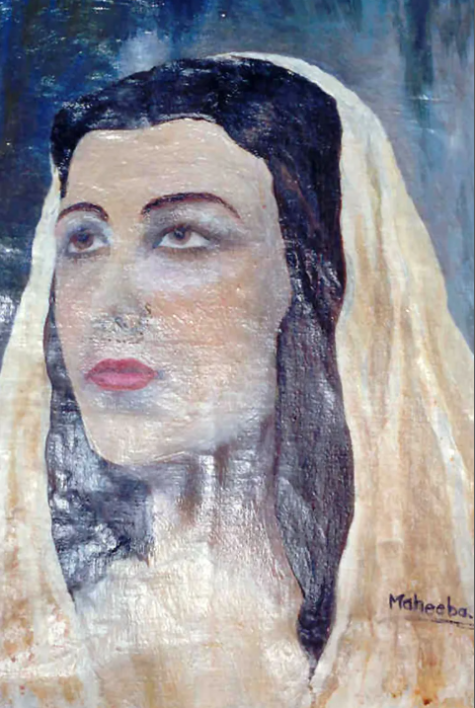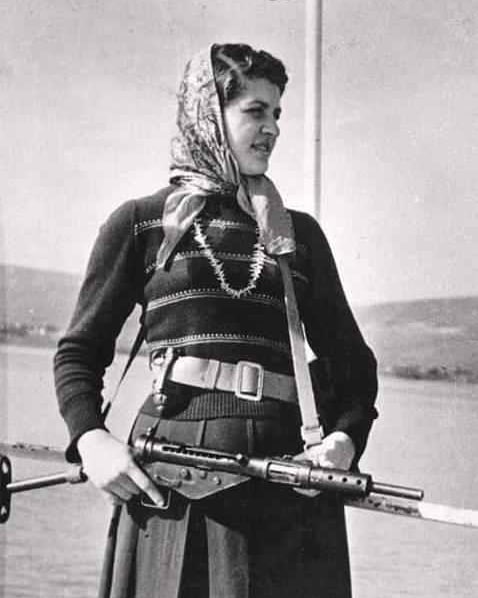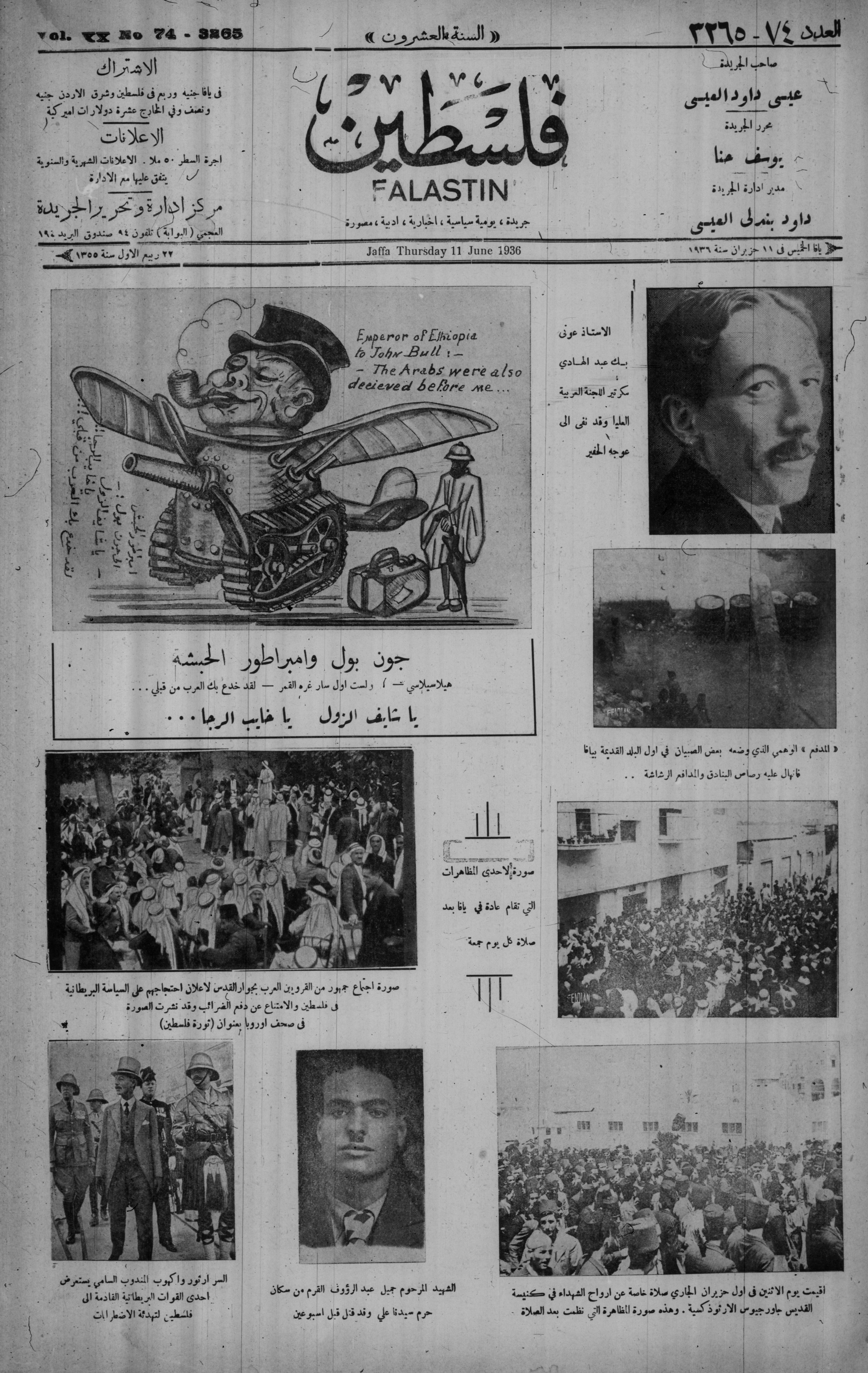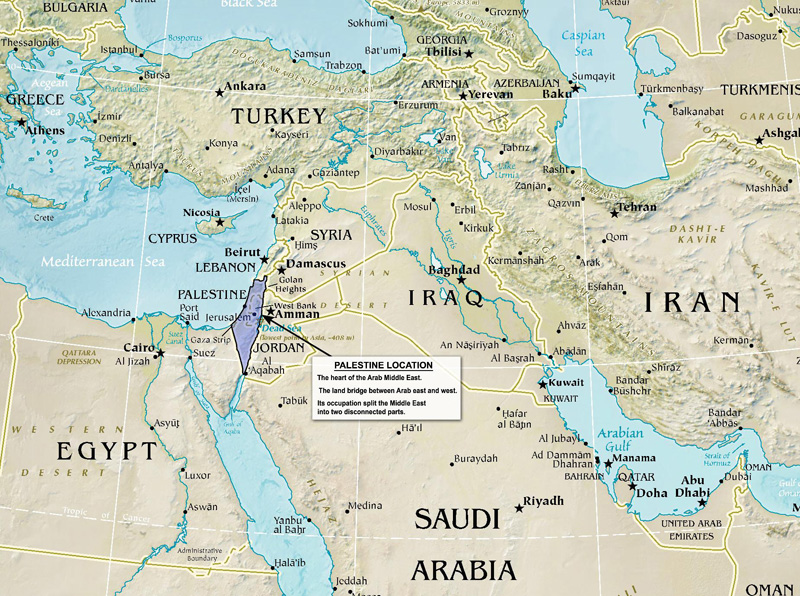Moheba Khorsheed (1921-2000) came from the Palestinian coastal town of Yafa (also known as Jaffa), where one of Palestine’s most important ports was located. She was a teacher, political activist and an armed fighter who defended her town against Zionist militias.
After the ethnic cleansing of Jaffa, in which more than 50,000 of the 70,000 Palestinians were forcibly expelled from their homes and driven into the sea, Khorsheed settled in Egypt, married and lived the rest of her life as a refugee who was never allowed to return.
Moheba Khorsheed studied at the Higher Institute for Teachers in Jerusalem. After graduating, she returned to her hometown of Yafa and taught high school students, instilling in them the spirit of nationalism.

Before the Palestine War of 1948, Yafa was one of the most progressive and prosperous towns in Palestine. It was home to most newspapers and printed matter and was known for its development in various industries such as agriculture, factories, banking and fishing.
Khorsheed went on to study Arabic literature and journalism. She was a member of a women’s association, the Arab Ladies Association, where she ensured that all religious backgrounds were equally represented among the members. In 1947, as tensions and fighting between Palestinian and Zionist paramilitaries increased, she founded another women’s association called Zahrat al-Uqhawan, or the Chrysanthemum Flowers. This society collected funds for the purchase of weapons and for the support of Palestinian families already displaced.
The Chrysanthemum Flowers morphed into a women-only armed organization after Khorsheed witnessed a British sniper shoot a ten-year-old Palestinian boy in the head, who died in his mother’s arms. She played a leading role and was involved in organizing and conducting operations, developing strategy and procuring weapons for use. Zionist propaganda denounced her and incited against her, while the Arab media praised her and compared her to Khawla Bint al-Azwar, a revered and legendary woman from the early history of Islam who fought many battles disguised as a man.
What were her ideas?
Moheba Khorsheed was an outspoken personality who publicly advocated the education of women and encouraged them to overcome harmful traditions. This went hand in hand with her patriotic zeal and opposition to the Zionist colonies that were built on Palestinian land and displaced the indigenous population. Some villages and towns, such as Qibya and Deir Yassin, were subjected to cruel massacres and total destruction.
Religious tolerance played a major role in her activism, as she emphasised the equal treatment and acceptance of people regardless of their different beliefs. Khorsheed struck up a brief friendship with Rachel Dayan, the niece of Moshe Dayan, a leader of the Zionist militia Haganah, which committed many atrocities against Palestinians, and who later became Israel’s Chief of Staff. Rachel condemned Zionism and its extremism and spent three days at Khorsheed’s house to recuperate after sustaining a nasty wound to her leg while climbing over the wire fence that separated her home in the Jewish colony of Bat Yam from Yafa. Rachel had come to warn Khorsheed of the Zionist militia’s preparations to overrun Yafa. It was the last time they would see each other.
Moheeba Khorsheed was known for her rousing public speeches at demonstrations, which led the colonial power at the time – the British Mandate in collusion with the Zionist movement – to summon her for interrogation. Khorsheed managed to evade interrogation by feigning sickness, even getting a doctor to issue fake medical reports on her behalf. Her sister Arabiya, who had co-established the Flowers with her, took Khorsheed’s place in protests and delivered her speeches instead.

What is their legacy?
After the fall of Yafa, Moheeba Khorsheed was among the thousands of refugees who were literally driven to the sea. She eventually settled in Egypt after making her way to Lebanon and then Jordan, where she married and returned to work as a teacher. She never returned to her homeland and died in 2000.
A learned woman, Khorsheed understood the need for direct action in defence of her community and homeland against the colonial powers, a testament to her multifaceted personality who championed the interests of her students and helped the poor around her.
An educator, an activist and an armed fighter, Moheba Khursheed is credited with founding the first official armed women organization against colonialism in Palestine. Women had a rich history of participating in nationalistic struggles, such as selling their jewellery to buy weapons for the men in their family or gathering intelligence and relaying them back to the fighters, but the Chrysanthemum Flowers was the first established group of its kind.




